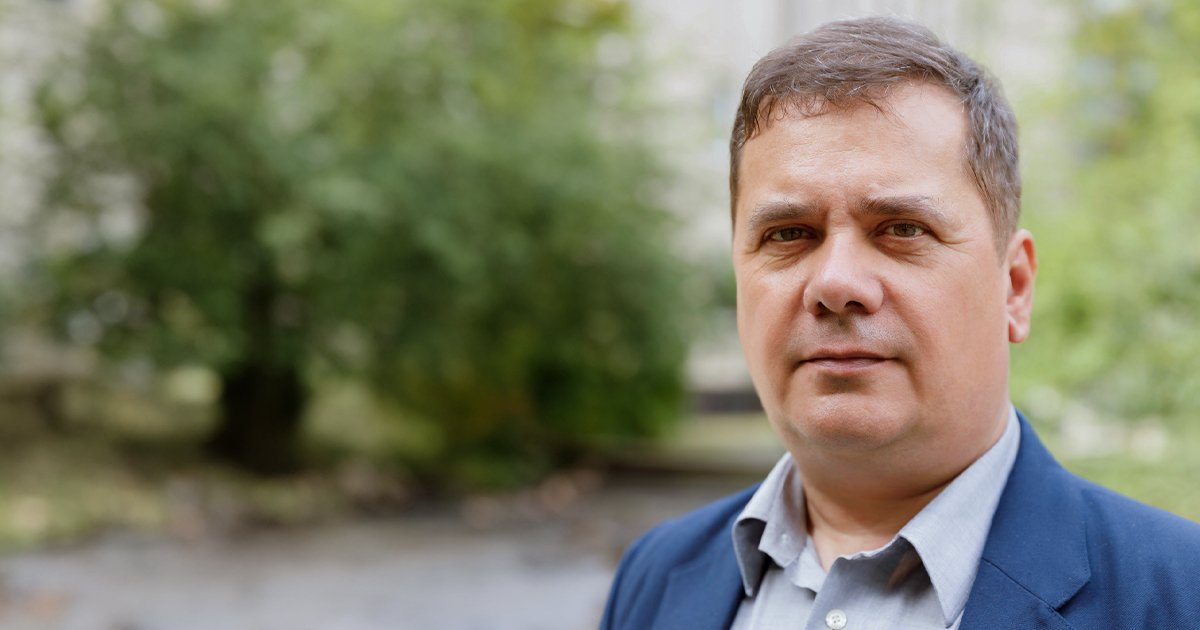Robert Yovni relies on his faith in God to make it through difficult times, and that faith leads him to help others.
Robert Yovni is a businessman and the director of the New Generation Charitable Foundation in Uzhhorod. After the Russian invasion of 2022, he changed his organisation’s focus to assisting internally displaced persons with housing, food, clothing and psychological support. This interview with him accompanies our Fighting for a Fairer Future report, which highlights the contributions made by Roma to Ukraine's defence, examines the war's impact on Roma communities, and offers ideas for inclusive post-war reconstruction.
What is the most difficult challenge you have faced in your life and how did you cope with it?
These challenges were my divorce and the disappearance of my son at the front. My son is a military man, he served in the Armed Forces of Ukraine. He went missing. In May 2024, it will be a year that I don't know what happened to him. He would have turned 31 soon...
Who or what inspired you to continue in difficult times?
I am a believer, a church minister. This motivates me and encourages me to continue working, not to lose hope, to live and continue doing my job.
Can you share a moment when you wanted to give up, but didn't, and what motivated you to continue?
I had such moments, more than once, when everything seemed to fall apart. I had no motivation, no strength. I didn't want to do anything. I have one place in nature that I retire to. There I pray and communicate with God. I don't tell anyone about my problems, I'm private in this regard. However, I can share with whom I can share—in prayer with God.
How do you stay positive when you face difficulties?
I try to reject all strong emotions: both when I feel good and when I feel bad. I realize that it will not always be like this. Just as night gives way to day, so do good times replace bad ones. I try to think positive and reject all negativity, because it is a killer of both neural connections and motivation. If a person around me is negative, I try to look at it from the point of view that something has happened to them, that they are going through some kind of trouble.
What advice would you give to a person who is going through a difficult time?
I advise them to find someone who can support them in their difficulties. It can be a loved one, a relative or a friend. If you don't have such people, you should turn to a clergyman who could support you, because it is hard to be alone. Not everyone can go through difficult times alone.
How did overcoming difficulties change your outlook on life?
I just became stronger internally and externally. If there are difficulties, it means that I have failed to take care of something, life is giving me an exam. If I don't break down, I have passed the exam and can move on. There are no problems for me—there are tasks to be solved.
What lessons have you learned from the difficulties you've faced?
The lesson is that you must always remain a human being, have your dignity, no matter how easy or difficult it is. And then all the difficulties that come into your life are easier because you know who you are.
How do you think your experience can help others facing similar difficulties?
From my experience, I recommend working on yourself, on your mental and physical health, not being afraid and recognizing your weaknesses. If your psychological health is poor, you should seek professional help, psychologists who can advise you on how to move forward.
What motivates you to keep moving forward, even when everything seems impossible?
Faith in God and faith in myself. Our life is what we are.
Looking back, what are you most proud of in your journey of overcoming obstacles?
The fact that I made the right decision in my life to change my life and not go the way my friends did. They did not go to God, did not go to church. I broke away from such a society and began to take care of myself, worked on myself, made friends with those who pulled me up, not down, and got an education. Now I am over 50 years old and I am still working on myself.
Why do you consider yourself a hero?
Because I work with people, help them get out of difficulties, help them financially, help them humanitarianly, support them psychologically, and this gives me a quality that helps me understand that I am a hero for someone.

Roma Foundation for Europe
The latest

Serbia Must Amend Missing Persons Alert System to Protect Vulnerable Adults

Constitutional Review of the Šutar Law Confirms Serious Rule-of-Law Concerns

Europe’s Growth Depends on Roma Talent
Browse by category
Campaigns
Events
Facts
Press
Voices
For media inquiries:
[email protected]Sign up here so you don’t miss out on campaign updates, upcoming events and other news from the Roma Foundation for Europe and our network.
Sign up for our newsletter